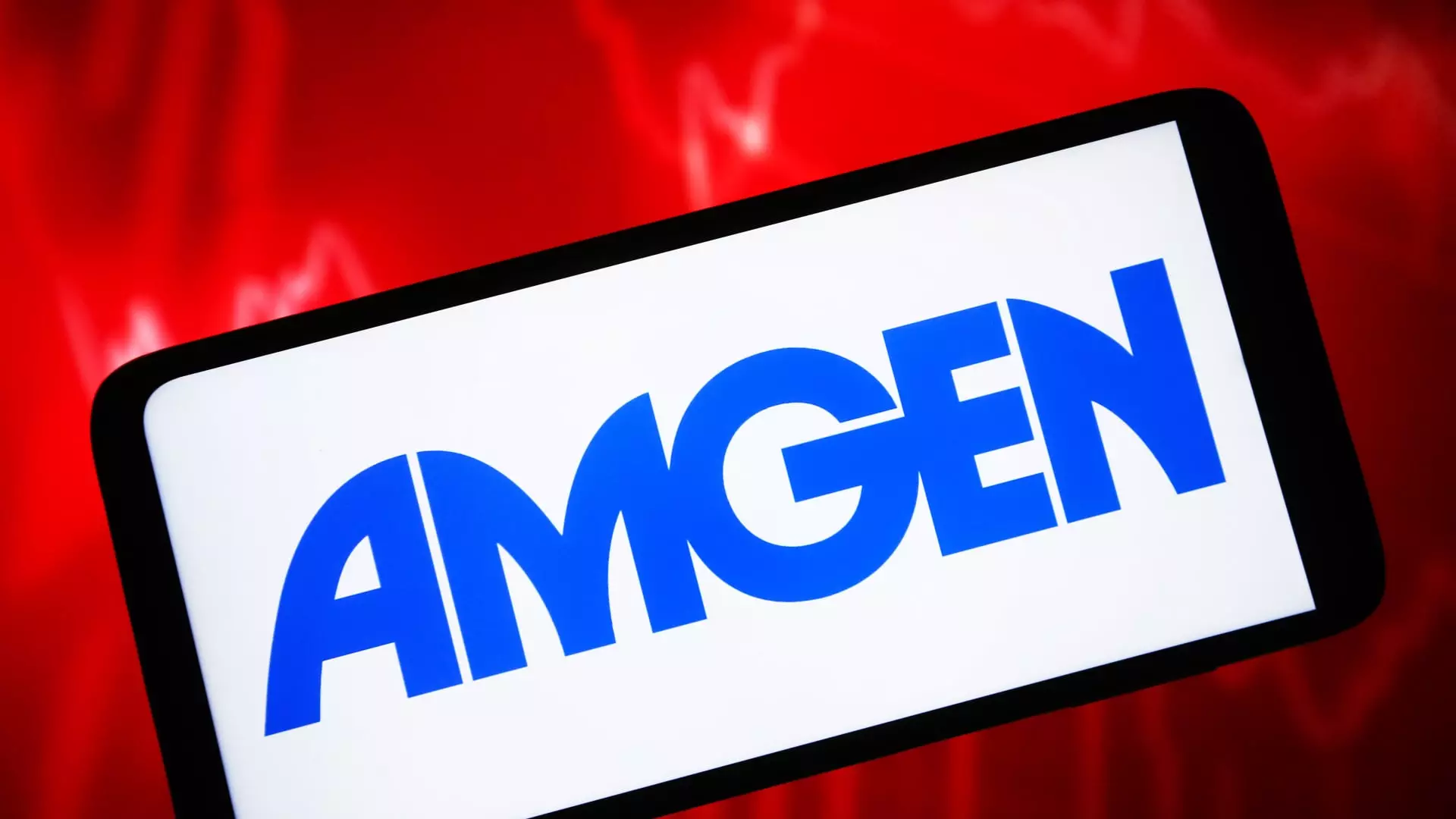Amgen’s stock experienced a significant surge of over 12% on Friday, following positive initial data release regarding its experimental weight loss injection. This news sparked enthusiasm among investors but also raised concerns about potential competition within the weight loss drug industry. The announcement had a direct impact on the stock prices of Novo Nordisk and Eli Lilly, with both experiencing a decline on Friday. The unveiling of Amgen’s obesity injection, MariTide, during their first-quarter earnings call, was met with optimism from the company’s CEO, Bob Bradway. The CEO expressed confidence in MariTide’s unique profile and ability to address unmet medical needs more effectively than existing weight loss treatments.
Although specific data on MariTide was not provided during the earnings call, Chief Scientific Officer Jay Bradner assured investors that patient dropout rates were not a concern. Amgen aims to release initial data from the study in late 2024, indicating a significant step towards commercialization. The company also has plans for late-stage studies involving patients with obesity, obesity-related conditions, and diabetes. Amgen’s innovative approach to MariTide involves administering the injection using a hand-held autoinjector once a month or less frequently, offering a convenient alternative to the weekly injections required by competitors like Novo Nordisk’s Wegovy and Eli Lilly’s Zepbound.
The reception of Amgen’s MariTide by industry analysts has been generally positive, with William Blair analyst Matt Phipps upgrading the rating on Amgen shares to “outperform.” Phipps highlighted the potential for MariTide to differentiate itself significantly from other weight loss therapies, particularly in terms of treatment intervals. Despite Amgen’s decision to discontinue its experimental oral obesity drug, the focus remains on the promising future of MariTide. Jefferies analyst Michael Yee emphasized the importance of the MariTide update, overshadowing the discontinuation of the oral obesity drug.
Amgen’s proactive stance towards expanding manufacturing capabilities for MariTide indicates a strategic move to address potential supply demands. This initiative underscores the company’s commitment to ensuring an adequate supply of the drug once it reaches the market. In contrast, Novo Nordisk and Eli Lilly have faced challenges related to supply constraints in recent times. However, Eli Lilly’s reassurance to investors regarding overcoming supply issues for its key drugs, including Zepbound and Mounjaro, led to a positive response from the market.
In contrast, Novo Nordisk’s performance during the first quarter fell short of analysts’ expectations, despite a significant increase in Wegovy sales. The company acknowledged challenges in meeting the growing demand for its treatments, citing intense competition from Eli Lilly’s Zepbound as a contributing factor. The pricing dynamics in the market have been affected by this competitive landscape, leading to adjustments in net pricing for weight loss drugs like Wegovy and Ozempic in the U.S. Novo Nordisk’s Chief Financial Officer, Karsten Munk Knudsen, highlighted the impact of increased volume and competition on pricing dynamics during the first-quarter earnings call.
The weight loss drug industry offers significant opportunities for innovation and growth, as evidenced by Amgen’s advancements in developing MariTide. While competition among key players like Novo Nordisk and Eli Lilly remains fierce, the key to success lies in differentiation, supply chain resilience, and the ability to adapt to changing market dynamics. As the industry continues to evolve, companies must navigate challenges while capitalizing on emerging opportunities to stay ahead in this competitive landscape.



Leave a Reply